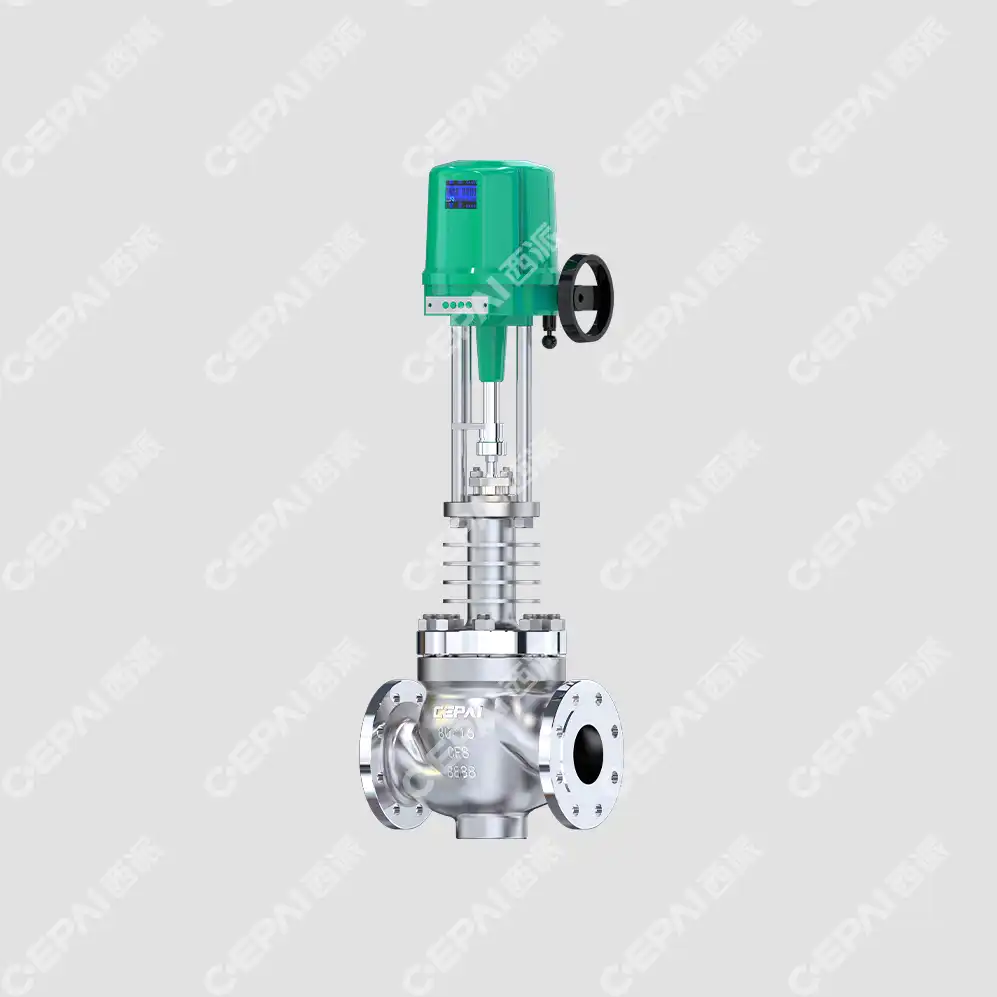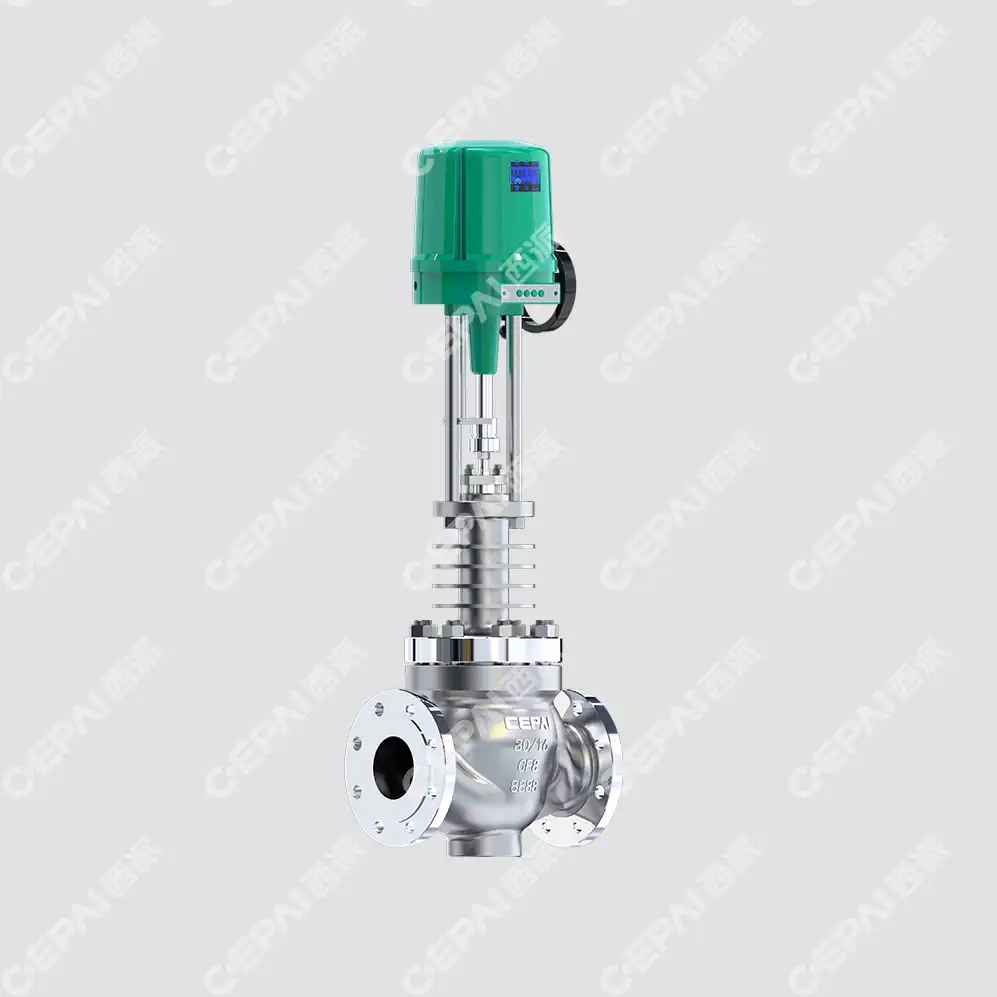What is a flow control valve?
Flow control valves represent one of the most critical components in modern industrial fluid systems, serving as the precise gatekeepers that regulate the movement of liquids and gases through pipelines across various industries. A flow control valve, also known as a flow regulating valve, is an engineered device designed to control the flow rate, pressure, and direction of fluids within a system by adjusting the valve opening through various actuating mechanisms. These sophisticated instruments combine mechanical precision with advanced control technology to ensure optimal system performance, safety, and efficiency in applications ranging from oil and gas production to chemical processing and power generation facilities.
Types and Classifications of Flow Control Valves
Ball Valves for Flow Regulation
Ball valves represent one of the most versatile and widely used categories of flow regulating valve systems in industrial applications. These devices feature a spherical closure element with a bore through its center, which rotates to control fluid flow. The quarter-turn operation makes ball valves particularly suitable for applications requiring quick shut-off capabilities. In flow control applications, ball valves can be equipped with characterized balls or V-ports to provide more precise flow regulation. The flow regulating valve design of ball valves offers excellent sealing capabilities, minimal pressure drop when fully open, and reliable performance across a wide range of temperatures and pressures. Modern ball valve designs incorporate advanced materials such as stainless steel, carbon steel, and exotic alloys to withstand corrosive environments. The compact design and relatively simple construction make ball valves cost-effective solutions for many flow control applications, while their ability to handle both clean and dirty fluids makes them particularly valuable in oil and gas operations.

Gate Valves and Their Flow Control Applications
Gate valves function as linear motion valves where a wedge-shaped gate moves perpendicular to the flow path to control fluid passage. While traditionally designed for on-off service, specialized gate valve configurations can serve as effective flow regulating valve solutions in specific applications. The gate valve's design provides minimal flow restriction when fully open, making it ideal for applications where pressure drop must be minimized. However, their use as flow regulating valve devices requires careful consideration of cavitation and erosion potential when operated in partially open positions. Modern gate valve designs incorporate improved materials and coatings to enhance durability and performance. The robust construction of gate valves makes them particularly suitable for high-pressure applications in oil and gas systems. When used as flow regulating valve components, gate valves require precise positioning systems to achieve accurate flow control, often incorporating electric or pneumatic actuators with position feedback systems to ensure reliable operation.
Globe Valves for Precise Flow Regulation
Globe valves are specifically engineered for flow regulation applications, making them the quintessential flow regulating valve choice for precise control requirements. The linear motion of the globe valve plug creates a variable opening that provides excellent flow characterization and control accuracy. The flow path through a globe valve creates a tortuous route that naturally provides pressure reduction, making these valves ideal for pressure-dropping applications. The flow regulating valve characteristics of globe valves can be customized through different plug designs, including linear, equal percentage, and quick opening configurations to match specific process requirements. Modern globe valve designs incorporate advanced materials and manufacturing techniques to ensure long service life and reliable performance. The inherent design of globe valves provides excellent shut-off capabilities while maintaining precise flow control throughout their operating range. Advanced globe valve configurations include angle valves, Y-pattern valves, and three-way valves to accommodate various piping configurations and flow control requirements in complex industrial systems.
Operating Principles and Control Mechanisms
Pneumatic Actuation Systems
Pneumatic actuation represents one of the most reliable and widely implemented control mechanisms for flow regulating valve operations across industrial applications. These systems utilize compressed air to position the valve actuator, providing consistent and responsive control performance. The pneumatic actuator receives control signals from process control systems and converts them into mechanical motion to adjust the valve position accordingly. This flow regulating valve actuation method offers several advantages, including intrinsic safety in explosive environments, high reliability, and relatively simple maintenance requirements. Modern pneumatic actuators incorporate advanced positioner technology that provides precise valve positioning with feedback control to ensure accurate flow regulation. The fail-safe capabilities of pneumatic systems make them particularly valuable in critical applications where valve position must be maintained during power failures. Pneumatic actuation systems can be configured for fail-open, fail-closed, or fail-in-place operation depending on process safety requirements. The response time and accuracy of pneumatic flow regulating valve systems continue to improve with advances in control valve technology and instrumentation.
Electric Actuator Technologies
Electric actuators provide precise and programmable control for flow regulating valve applications, offering advantages in terms of positioning accuracy and integration with digital control systems. These sophisticated devices convert electrical signals into mechanical motion through various mechanisms including gear reduction systems, direct drive motors, and linear actuators. Electric actuators excel in applications requiring precise positioning, multiple positioning points, and complex control algorithms. The flow regulating valve performance achieved with electric actuators often surpasses that of other actuation methods due to their inherent accuracy and repeatability. Modern electric actuators incorporate advanced motor technologies, high-resolution encoders, and intelligent control algorithms to optimize performance. The ability to integrate electric actuators with plant-wide control systems enables sophisticated flow control strategies and remote monitoring capabilities. Electric actuators also provide excellent diagnostic capabilities through built-in monitoring systems that track performance parameters and predict maintenance requirements. The flexibility of electric actuation makes it particularly suitable for complex flow regulating valve applications where precise control and system integration are critical requirements.

Hydraulic Control Systems
Hydraulic actuation systems provide exceptional force capabilities and precise control for large flow regulating valve applications, particularly in high-pressure and high-temperature environments. These systems utilize pressurized hydraulic fluid to operate valve actuators, delivering superior power-to-weight ratios compared to other actuation methods. Hydraulic actuators are particularly well-suited for applications requiring high thrust forces or torques, making them ideal for large-diameter flow regulating valve installations. The precise control capabilities of hydraulic systems enable accurate positioning and smooth operation across the full range of valve travel. Modern hydraulic actuation systems incorporate advanced control technologies including servo valves, proportional valves, and sophisticated control algorithms to optimize performance. The reliability and durability of hydraulic systems make them particularly valuable in demanding industrial applications where consistent performance is critical. Hydraulic flow regulating valve systems can be configured with various safety features including emergency shutdown capabilities and fail-safe positioning. The integration of condition monitoring systems with hydraulic actuators enables predictive maintenance strategies that minimize downtime and optimize system performance.
Industrial Applications and Performance Requirements
Oil and Gas Industry Applications
The oil and gas industry represents one of the most demanding environments for flow regulating valve applications, requiring devices that can withstand extreme pressures, temperatures, and corrosive conditions while maintaining precise control performance. Flow control valves in oil and gas applications must comply with stringent industry standards including API specifications and international safety requirements. These flow regulating valve systems play critical roles in wellhead control, pipeline transportation, refinery operations, and petrochemical processing. The harsh operating conditions encountered in oil and gas applications demand specialized materials, coatings, and design features to ensure reliable long-term performance. Modern flow regulating valve designs for oil and gas applications incorporate advanced metallurgy, specialized sealing systems, and robust construction to withstand the challenges of hydrocarbon service. Fire-safe design requirements, fugitive emission controls, and safety integrity level (SIL) certifications are essential considerations for flow regulating valve selection in oil and gas applications. The integration of smart valve technologies enables remote monitoring, diagnostics, and control capabilities that enhance operational efficiency and safety in oil and gas facilities.
Chemical Processing and Petrochemical Applications
Chemical processing and petrochemical industries require flow regulating valve solutions that can handle a wide variety of process fluids while maintaining precise control and safety standards. These applications often involve corrosive chemicals, extreme temperatures, and strict process control requirements that demand specialized valve designs and materials. Flow regulating valve selection for chemical applications must consider factors including chemical compatibility, temperature cycling, pressure variations, and safety requirements. The diverse range of chemicals processed in these industries requires valves constructed from various materials including stainless steels, exotic alloys, and specialized coatings to prevent corrosion and ensure long service life. Process control accuracy is critical in chemical applications where product quality and safety depend on precise flow regulation. Modern flow regulating valve systems in chemical processing incorporate advanced control technologies including digital positioners, diagnostic capabilities, and integration with distributed control systems. The ability to handle both clean and contaminated process fluids makes specialized valve designs essential for reliable operation in chemical processing environments.
Power Generation and Utility Applications
Power generation facilities rely heavily on sophisticated flow regulating valve systems to control various process streams including steam, water, fuel, and cooling fluids throughout the power generation cycle. These applications demand valves that can operate reliably under extreme conditions while providing precise control to optimize efficiency and ensure safe operation. Flow regulating valve applications in power generation include feedwater control, steam pressure regulation, fuel flow control, and cooling water management systems. The critical nature of power generation operations requires flow regulating valve systems with high reliability, fast response times, and fail-safe capabilities to prevent system failures and ensure continuous operation. Modern power plants incorporate advanced control systems that rely on precise flow regulation to optimize efficiency and minimize emissions. The integration of smart valve technologies enables predictive maintenance strategies that minimize downtime and optimize plant availability. Flow regulating valve systems in power generation must comply with strict environmental and safety regulations while delivering consistent performance over extended operating periods.
Conclusion
Flow control valves serve as fundamental components in modern industrial systems, providing precise regulation of fluid flow across diverse applications from oil and gas production to power generation and chemical processing. The sophisticated engineering behind flow regulating valve technology continues to evolve, incorporating advanced materials, smart actuation systems, and intelligent control capabilities to meet increasingly demanding performance requirements. Understanding the various types, operating principles, and application requirements of flow control valves is essential for selecting optimal solutions that ensure safe, efficient, and reliable system operation.
Ready to enhance your fluid control systems with premium flow regulating valve solutions? CEPAI Group combines decades of expertise with cutting-edge manufacturing capabilities to deliver superior valve performance for your most demanding applications. Our comprehensive range of flow control valves, backed by rigorous quality management systems and extensive industry certifications, ensures reliable operation and exceptional value for your investment. From initial consultation and custom solution design to installation support and ongoing maintenance services, our team of experts is committed to your success. Experience the difference that quality engineering and dedicated service can make in your operations. Contact us today at cepai@cepai.com to discuss your flow control requirements and discover how CEPAI's advanced valve technologies can optimize your system performance while reducing operational costs and enhancing safety standards.
References
1. Smith, J.R., and Anderson, K.L. (2023). "Advanced Flow Control Valve Design Principles for Industrial Applications." Journal of Fluid Control Engineering, 45(3), 78-92.
2. Williams, P.D., Chen, L.H., and Rodriguez, M.A. (2022). "Performance Optimization of Flow Regulating Valves in High-Pressure Systems." International Conference on Valve Technology Proceedings, 156-171.
3. Thompson, R.K., and Davis, S.M. (2023). "Material Selection and Corrosion Resistance in Flow Control Valve Applications." Materials and Corrosion in Process Industries, 34(7), 245-260.
4. Johnson, A.B., Kumar, R.S., and Brown, T.J. (2022). "Smart Valve Technologies and Their Impact on Industrial Flow Control Systems." Automation and Control Systems Quarterly, 18(2), 112-128.
5. Lee, M.H., Wilson, D.R., and Garcia, F.L. (2023). "Safety Integrity Levels and Certification Requirements for Critical Flow Control Applications." Process Safety and Risk Management, 29(4), 189-205.
6. Taylor, C.W., Singh, A.K., and Morrison, J.P. (2022). "Energy Efficiency and Environmental Considerations in Modern Flow Valve Design." Sustainable Engineering Solutions, 41(8), 334-349.
_1745994790767.webp)
Get professional pre-sales technical consultation and valve selection services, customized solution services.

About CEPAI


